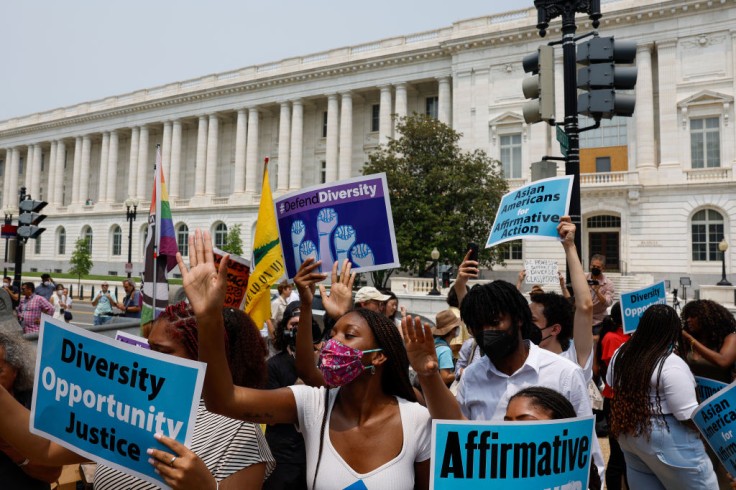
The Supreme Court ends affirmative action in higher education.
The Supreme Court has delivered a significant blow to affirmative action in higher education by ruling that the race-conscious admission policies of Harvard College and the University of North Carolina (UNC) violate the Constitution.
This decision brings an end to the practice of considering race in college admissions, with far-reaching implications for campuses across the nation.
Supreme Court Ends Affirmative Action in Higher Education
In a highly anticipated ruling, the Supreme Court declared that the affirmative action policies employed by Harvard College and UNC are unconstitutional.
According to NBC News, the court's decision, delivered by Chief Justice John Roberts, states that these admission programs fail to meet the guarantees of the Equal Protection Clause and utilize race in a manner that perpetuates negative racial stereotypes.
The majority opinion, supported by Justices Clarence Thomas, Samuel Alito, Neil Gorsuch, Brett Kavanaugh, and Amy Coney Barrett, highlights the lack of focused and measurable objectives in these programs and emphasizes the need to evaluate students as individuals rather than based on their race.
The Supreme Court's ruling on affirmative action in college admissions is expected to have a profound impact on higher education institutions across the country.
More than 40% of universities and 60% of selective schools currently consider race to some degree in their admissions decisions, according to filings from Harvard.
The decision to end race-conscious admissions programs raises concerns about the potential decline in the representation of Black and Hispanic students, particularly at elite institutions.
The court's decision effectively overturns its previous precedent established in the 2003 case Grutter v. Bollinger, which allowed schools to consider race in admissions decisions.
Justice Thomas, in his concurring opinion, stated that the 2003 decision is essentially overruled.
According to Politico, this shift in the court's stance has been met with criticism from Justice Sonia Sotomayor, who accused the conservative majority of overruling decades of precedent.
The two cases brought before the Supreme Court involved Harvard, the nation's oldest private institution, and UNC, the oldest public university.
Students for Fair Admissions, an organization founded by conservative activist Ed Blum, initiated both lawsuits in November 2014.
The group claimed that Harvard's admission policies discriminated against Asian-American applicants by assigning them lower ratings on personality traits and restricting their numbers.
In the UNC case, the organization argued that the university overlooked race-neutral alternatives to achieve diversity among its student body, thus violating the Equal Protection Clause of the 14th Amendment.
Reactions and Future Considerations
While the Supreme Court's ruling marks a significant shift in the landscape of college admissions, universities have reiterated their commitment to diversity and inclusion.
According to CNN, Harvard, in a message to its community, expressed its dedication to preserving essential values and determining a path forward that aligns with the new precedent set by the Court.
UNC Chancellor Kevin Guskiewicz stated that the university would comply with the ruling while continuing to prioritize bringing together students from diverse backgrounds.
The decision of the Supreme Court may lead to a reevaluation of admissions policies across the nation, with institutions seeking race-neutral alternatives to promote diversity.
Proponents of affirmative action argue that considering race as part of a holistic evaluation is crucial for increasing diversity and ensuring equal access to educational opportunities for underrepresented groups.
As colleges and universities navigate the aftermath of this landmark ruling, discussions about diversity, equality, and the role of race in college admissions are expected to continue, shaping the future of higher education in the United States.